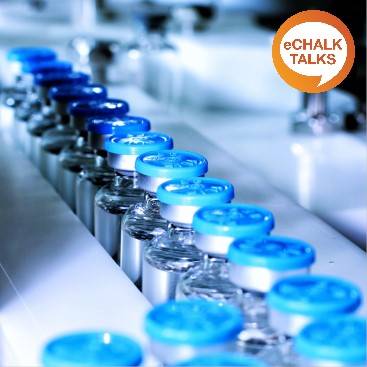Catalog

Cannabinoids, such as cannabidiol (CBD) hold great therapeutic promise as shown by both established (epilepsy, sclerosis) and emerging (psychosis, anxiety, mood, and sleep disorders, addiction, pain etc.) science. However, currently available delivery formats for cannabinoid medicine as well as ongoing R&D face challenges with regard to API absorption and patient compliance. Firstly, formulating with CBD can be challenging due to its variable oral bioavailability. Stability, solubility, and mode of administration all play a role in the rate of absorption of CBD. The oral bioavailability of CBD has been shown to be very low in humans (6%), as a result of incomplete absorption in the gut and significant pre-systemic elimination in the liver. It is estimated that up to 75% of orally absorbed CBD is removed by hepatic metabolism. Bioavailability of the active is directly linked to its therapeutic efficacy and the dose required to achieve a response. It is therefore important to identify solutions to enhance the bioavailability of CBD and other cannabinoids. The currently preferred option of medicine manufacturers to overcome this hurdle is delivering CBD in an oil vehicle because CBD absorption is increased in the presence of fatty foods. And it has been a smart choice with the technologies we have had at hand. But that comes with its own challenges regarding patient convenience, patient compliance, and a proven high variability between patients. Consuming large volumes of oil to reach the prescribed dose is not pleasant or easy. When it comes to children or people with a difficulty swallowing, it is almost impossible. Addressing this will make a difference for patient acceptance. In this session we would like to share the learnings from a two-year technology assessment process whereby our formulation and application scientists examined more than 200 prototypes and tested in vitro and in vivo several technologies for improving the bioavailability of CBD while enabling patient-friendly formats such as orodispersible tablets, chewables, capsules, and other oral delivery formats with high API loading.
About this item

Cannabinoids, such as cannabidiol (CBD) hold great therapeutic promise as shown by both established (epilepsy, sclerosis) and emerging (psychosis, anxiety, mood, and sleep disorders, addiction, pain etc.) science. However, currently available delivery formats for cannabinoid medicine as well as ongoing R&D face challenges with regard to API absorption and patient compliance. Firstly, formulating with CBD can be challenging due to its variable oral bioavailability. Stability, solubility, and mode of administration all play a role in the rate of absorption of CBD. The oral bioavailability of CBD has been shown to be very low in humans (6%), as a result of incomplete absorption in the gut and significant pre-systemic elimination in the liver. It is estimated that up to 75% of orally absorbed CBD is removed by hepatic metabolism. Bioavailability of the active is directly linked to its therapeutic efficacy and the dose required to achieve a response. It is therefore important to identify solutions to enhance the bioavailability of CBD and other cannabinoids. The currently preferred option of medicine manufacturers to overcome this hurdle is delivering CBD in an oil vehicle because CBD absorption is increased in the presence of fatty foods. And it has been a smart choice with the technologies we have had at hand. But that comes with its own challenges regarding patient convenience, patient compliance, and a proven high variability between patients. Consuming large volumes of oil to reach the prescribed dose is not pleasant or easy. When it comes to children or people with a difficulty swallowing, it is almost impossible. Addressing this will make a difference for patient acceptance. In this session we would like to share the learnings from a two-year technology assessment process whereby our formulation and application scientists examined more than 200 prototypes and tested in vitro and in vivo several technologies for improving the bioavailability of CBD while enabling patient-friendly formats such as orodispersible tablets, chewables, capsules, and other oral delivery formats with high API loading.
Speaker Information
Zdravka Misic, Ph.D.
Zdravka Misic, Croatian and Swiss national, holds a PhD in Pharmaceutical Sciences from the University of Basel. She started her carrier as a formulation scientist in Teva in 2004. In 2009 she moved to Switzerland to ETH Zürich as ESKAS (Swiss Government Excellence Scholarships for Foreign Scholars) scholarship holder.
Zdravka joined dsm-firmenich in 2014 and since then she worked successfully as a Principal Pharmaceutical Scientist on developing new delivery systems for dsm-firmenich products and collaborated closely with Marketing in presenting them to customers. She is also leading the external collaborations with academic partners (University of Applied Sciences and ETH Zürich) and established CDMOs within pharmaceutical industry. Since January 2024, Zdravka switched to the position of an Innovation Project Manager dedicated to pharma innovation projects, in specific development of new oral solid CBD formulations with enhanced bioavailability.
Christiane Schweiggert, Ph.D.
- Senior Scientist in Formulation & Materials Science at dsm-firmenich.
- Doctorate and Diploma in Food Science and Engineering from the University of Hohenheim, Germany.
- Research focused on designing colloidal delivery systems for food and pharma applications.
- Work on oral dosage forms of CBD, aiming to increase its bioavailability and ensuring broad applicability in finished drug products.